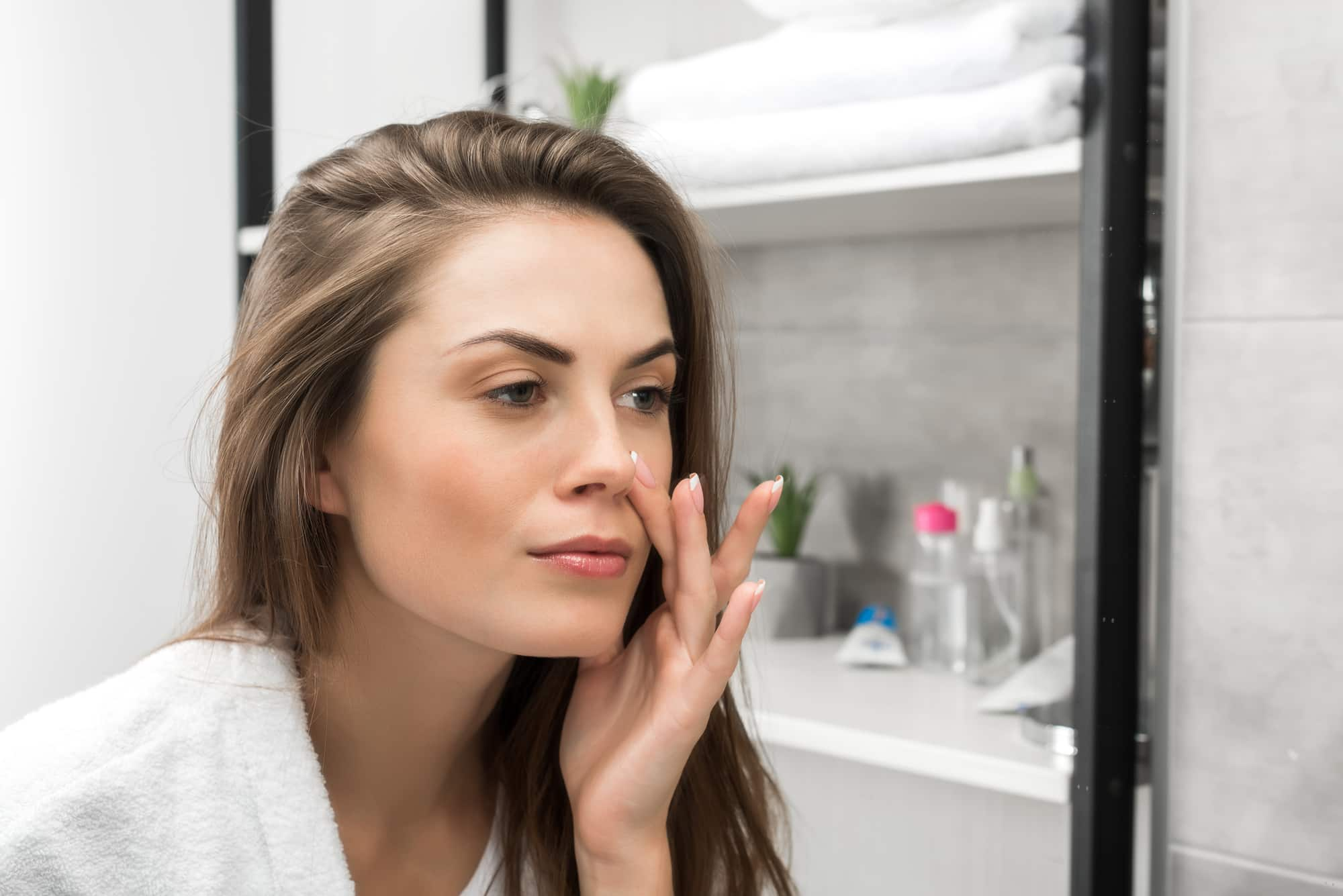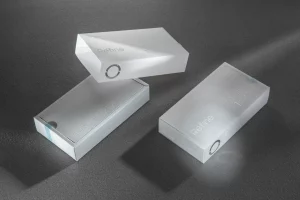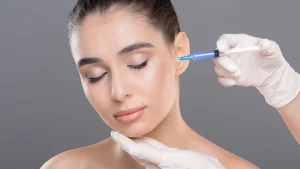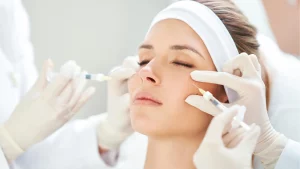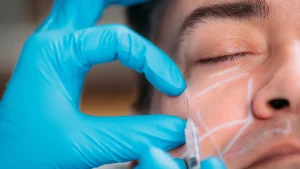In the quest for healthy and youthful skin, advances in science and technology have opened up new possibilities for personalized skin care. One such innovation is DNA testing specifically designed for skin care purposes. It is a cutting-edge approach that takes into account an individual’s genetic makeup to provide tailored skin care recommendations. By unlocking the secrets hidden within our genes, this advanced technique aims to revolutionize the way we care for our skin.
Join us as we navigate the intricacies of skin DNA testing, shedding light on its promises, limitations, and the emerging field’s future prospects. Discover how this innovative technology can elevate skin care to new heights, bringing forth a more refined and personalized approach to nurturing our skin.
Skin Aging Process
Skin aging is a natural and gradual process that occurs over time due to various factors, including genetics, lifestyle choices, and external influences. It’s typically split into two categories – intrinsic and extrinsic.
Intrinsic aging, also known as chronological aging, is the natural aging process that happens to everyone over time. It is largely influenced by genetics and is characterized by a decrease in collagen and elastin production, leading to thinner and less elastic skin.
Extrinsic aging is caused by external factors, such as sun exposure, pollution, smoking, and poor skin care habits. These factors accelerate the aging process and lead to premature aging of the skin.
So, let’s break down these groups and analyze all the important factors one by one.
Sun damage is a significant contributor to skin aging. Ultraviolet (UV) rays from the sun can penetrate the skin and cause damage, leading to wrinkles, age spots, and sagging skin. Testing the skin’s DNA can give us insight into how susceptible the skin is to this kind of damage.
Environmental factors, including pollution and toxins, can contribute to skin aging. Air pollutants can generate free radicals that damage the skin’s cells and accelerate the breakdown of collagen and elastin.
Lifestyle choices, such as smoking and a poor diet, can also accelerate the skin aging process. Smoking reduces blood flow to the skin, depletes oxygen and nutrients, and damages collagen and elastin fibers. Unhealthy diets lacking essential nutrients can lead to poor skin health and premature aging.
Genetic factors play a role in skin aging, determining an individual’s predisposition to certain skin conditions and the overall rate of aging. Genetic tests can provide insights into one’s genetic predisposition to skin aging and help tailor skin care routines accordingly.
Gaining or losing weight in a short period of time is another overlooked factor. Although both can be seen as healthy, our skin takes time to adjust and, frequently, looks saggy or gets stretchmarks that are hard to get rid of. This, of course, depends to a certain extent on each individual.
DNA Testing in Skin Care
DNA skin testig is a relatively new field that aims to personalize skin care routines based on an individual’s genetic makeup.
To perform the necessary tests, a DNA sample needs to be collected. This is typically done through a simple and non-invasive process, such as a cheek swab or saliva sample. The collected sample contains the individual’s genetic material.
The DNA is extracted from the collected sample using specialized laboratory techniques. This process isolates the genetic material from other cellular components. Once extracted, DNA is then genotyped by analyzing specific regions of the DNA that are known to be relevant to skin health and aging. This is typically done using advanced genetic analysis technologies, such as microarray or next-generation sequencing.
The genotyped DNA data is subjected to genetic analysis through a skin DNA test kit. This involves comparing the individual’s genetic profile to established scientific knowledge about skin health and specific genetic markers. The analysis aims to identify genetic variations or markers associated with certain skin traits or conditions. Recently, tools and personalized kits like Muhdo have helped individuals complete this part of testing at home, speeding up the process and offering more affordable testing.
The individual receives a comprehensive skin report summarizing the genetic findings and providing personalized skin care advice. The report may include information about the specific genetic variations identified, their impact on skin health, and practical recommendations.
This whole process takes four to six weeks.
Aspects of Skin Care in Your Results
Individuals who undergo a DNA skin test typically receive a detailed report on their skin genetics, followed by advice on how they can improve their skin’s health through skin care product application. Every test is slightly different, with some providing just an overview, while others go much deeper into every detail.
Typically speaking, the results cover these seven categories:
- Collagen production: Collagen is an essential protein for retaining the skin’s elasticity. Genetic variations, as well as aging, impact collagen production and degradation. Analyzing the skin DNA can reveal how one’s skin is able to maintain natural collagen reserves.
- Antioxidant defense: Genetic markers that influence the body’s ability to neutralize free radicals, which can cause oxidative stress and contribute to premature aging. This is our skin’s natural defense system.
- Skin sensitivity and Inflammation response: Variations in genes related to inflammation and the body’s ability to manage inflammatory processes, which can affect skin conditions such as acne, rosacea, or sensitivity. Additionally, this also shows whether the skin has increased sensitivity to environmental factors and allergens.
- Hydration levels: Genetic factors that influence the skin’s ability to retain moisture and maintain proper hydration, which is vital for a healthy skin barrier.
- Sun sensitivity: Variations in genes associated with the skin’s response to UV radiation, including the likelihood of sunburn and the potential for developing sun-related skin damage. A skin DNA test is most often used to determine this factor.
- Skin elasticity: Directly tied to collagen production, skin elasticity naturally decreases as we age. At the age of 40, the natural elastin and collagen start degrading, leading to the skin losing its shape-retention abilities.
- Aging predisposition: Genetic markers that can provide insights into an individual’s genetic predisposition to skin aging and the rate at which certain signs of aging may manifest.
Conclusion
Despite sounding like a fad, DNA skin care is one of the best ways to keep our skin healthy for a long time. By knowing which factors impact our skin’s age the most, we can focus on protecting our skin. While we cannot stop time, we can at least slow down the aging process in many ways, including the use of dermal fillers such as Radiesse.
As DNA testing in skin care continues to advance, it holds the potential to refine and personalize skin care practices further. By embracing the knowledge provided by genetic testing alongside expert advice, individuals can make informed decisions about their skin care routines, leading to healthier and more radiant skin.
FAQ
Can skin be used for DNA testing?
Skin isn’t typically used in DNA testing. Instead, DNA skin analysis kits use saliva samples to determine the genetic makeup of our skin. This way, we can learn more about ourselves and get personalized skin care advice.
How accurate is face DNA testing?
Most face DNA tests have a 92% accuracy or higher, and that’s without bloodwork.
What is DNA-based skin care?
DNA-based skin care is a method of determining the best routine based on testing your skin DNA. After the analysis, you get a personalized report telling you about your current skin condition and suggesting treatments that suit you the best.
References
Personalized Skin Care Service Based on Genomics; Jitao Yang; Nov 2021
https://link.springer.com/chapter/10.1007/978-3-030-90885-0_10
A DNA-Based Intelligent Expert System for Personalised Skin-Health Recommendations; Xiaoran Liu, Chih-Han Chen, Maria Karvela, Christofer Toumazou; Nov 2020
https://ieeexplore.ieee.org/abstract/document/9025046
